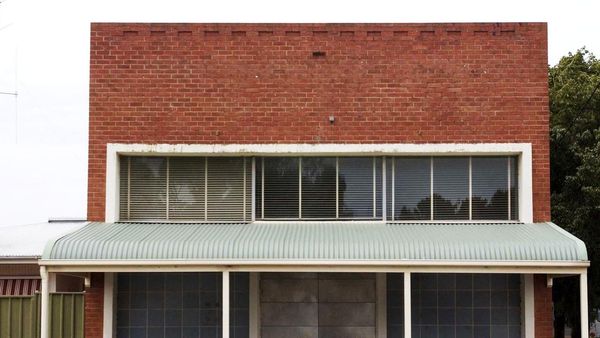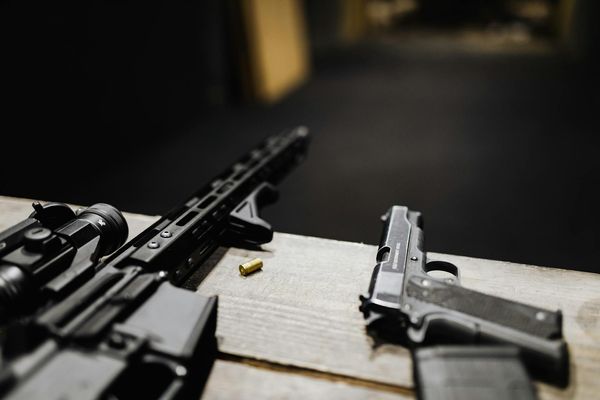
Unions are demanding an immediate end to the New South Wales government’s public sector wage cap after inflation rose to 5.1%, amid ongoing industrial action across multiple industries.
The head of the nursing union has also accused the government of attempting to “divide and conquer” unions after the NSW education minister, Sarah Mitchell, said teachers who planned to strike next week were being selfish for demanding a pay rise beyond what nurses have received – despite that sector also calling for a raise.
On Tuesday, the NSW Teachers Federation voted to walk off the job next Wednesday if the government did not increase wages and address staffing shortages.
The union executive also voted to allow teachers to leave school grounds if an MP visited – an action which dozens carried out when the premier, Dominic Perrottet, visited Marsden high school in western Sydney on Wednesday.
The premier has flagged there will be measures in the upcoming budget to address some of the issues raised by unions, but has resisted calls from Labor and the union to make any announcements before June.
“I can’t commit that they’re going to be happy with the outcome … but I believe we will come up with a fair and reasonable approach,” he said.
Perrottet said he wanted teachers in NSW to be “paid the very best” of all the states.
But the teachers union boss, Angelo Gavrielatos, claimed the government had been disingenuous in its dealings with the union and had not sat down with him for a formal negotiation since last October.
“When it comes to teaching and the health of the teaching profession, we are in a crisis,” he said.
“What is at risk here is the right of every child to be taught by a qualified teacher. This crisis will worsen for as long as the government continues the gimmickry and lies.”
Teachers are calling for pay rises of between 5% and 7.5% to address severe shortages and increased overtime.
On Tuesday, Mitchell said the demand was akin to “blackmail” and compared teachers with nurses, saying “the union is now asking for more than nurses and other frontline workers who have all worked tirelessly during the pandemic”.
Nurses have also been calling for a significant wage increase, as well as the introduction of nurse-to-patient ratios, and have gone on strike twice this year.
The NSW Nurses and Midwives’ Association general secretary, Brett Holmes, said that nurses and teachers both deserved to be treated better.
“Those are [the government’s] tactics – to divide and conquer,” Holmes said.
“The education minister shows the level of disrespect which she wouldn’t be prepared to do to nurses, otherwise the community would be in uproar. And the community should be an uproar about the level of disrespect to the teachers as well.”
On Wednesday, Mitchell said the government was committed to “reaching a fair and reasonable outcome in the Industrial Relations Commission”.
“The government is following a clear and agreed process for negotiating awards. We are simply asking the union does the same,” Mitchell said.
Paramedics are also calling for a rise above the cap to keep NSW competitive with other states so young workers aren’t lost to other states.
“We need a significant pay rise – not only because we deserve it but we’re now losing staff to other states,” said the NSW delegate for the Australia Paramedics Association, Brett Simpson.
The intensive care paramedic said it was a “miscalculation” for the government to “play unions off against each other”.
“It unities us in anger,” he said.
Unions NSW secretary, Mark Morey, said Wednesday’s inflation jump to 5.1% was proof “everything is going up except wages” and demanded Perrottet scrap the cap that was introduced during the pandemic.
“As the nation’s largest employer, the NSW government’s tight-fisted austerity is also holding back workers in the private sector from getting a pay rise that keeps pace with the cost of living,” he said.
“NSW is going to struggle to stop key workers from fleeing to other states where the cost of housing is lower and the prospect of a decent pay rise is greater.”
Rail workers have also been locked in heated negotiations with the government over conditions and pay after industrial action that led state authorities to shut down the Sydney rail network earlier this year.
“We are comfortable with where the negotiations are at this point [but] we do understand that the difficult part will be when they have to start talking about money,” RTBU secretary, Alex Claassens, said.
He was hopeful that he could present members with a new agreement sometime next month, or would be forced to consider further industrial action.
The state opposition leader, Chris Minns, has called for the government to be clear with the unions about what to expect in the budget to avoid further actions that will affect thousands of families.
“If there’s a chance to avoid industrial action between now and the budget day, let’s pursue that opportunity,” he said.







